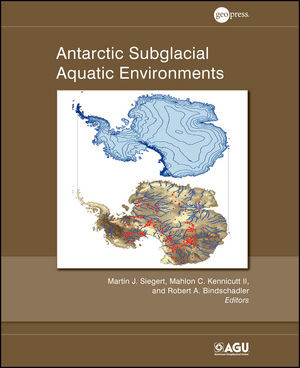

Most ebook files are in PDF format, so you can easily read them using various software such as Foxit Reader or directly on the Google Chrome browser.
Some ebook files are released by publishers in other formats such as .awz, .mobi, .epub, .fb2, etc. You may need to install specific software to read these formats on mobile/PC, such as Calibre.
Please read the tutorial at this link: https://ebookbell.com/faq
We offer FREE conversion to the popular formats you request; however, this may take some time. Therefore, right after payment, please email us, and we will try to provide the service as quickly as possible.
For some exceptional file formats or broken links (if any), please refrain from opening any disputes. Instead, email us first, and we will try to assist within a maximum of 6 hours.
EbookBell Team

5.0
58 reviewsPublished by the American Geophysical Union as part of the Geophysical Monograph Series.
Antarctic Subglacial Aquatic Environments is the first volume on this important and fascinating subject. With its underlying theme of bridging existing knowledge to future research, it is a benchmark in the history of subglacial lake exploration and study, containing up-to-date discussions about the history and background of subglacial aquatic environments and future exploration. The main topics addressed are identification, location, physiography, and hydrology of 387 subglacial lakes; protocols for environmental stewardship and protection of subglacial lake environments; details of three programs aiming to explore Vostok Subglacial Lake, Ellsworth Subglacial Lake, and Whillans Subglacial Lake over the next 3–5 years; assessment of technological requirements for exploration programs based on best practices for environmental stewardship and scientific success; and knowledge of subglacial lakes as habitats for microbial life and as recorders of past climate and ice sheet change. Its uniqueness, breadth, and inclusiveness will appeal to microbiologists and those interested in life in extreme environments, paleoclimatologists and those interested in sedimentary records of past changes, glaciologists striving to understand how water beneath glaciers affects their flow, and those engaged in developing technology to undertake direct measurement and sampling of extreme environments on Earth and in the solar system.Content: